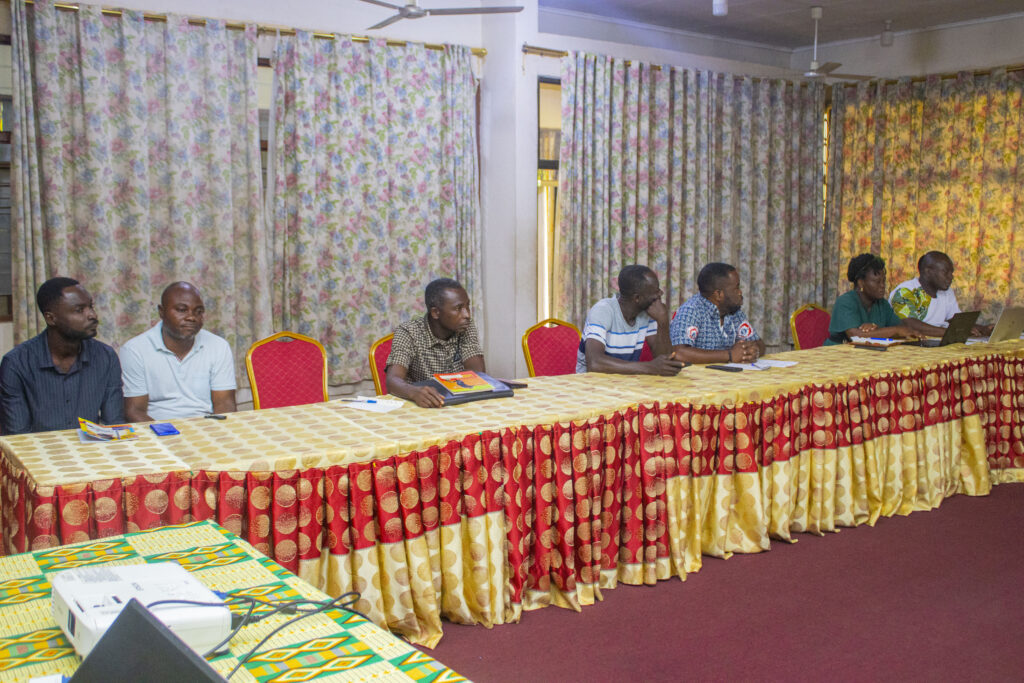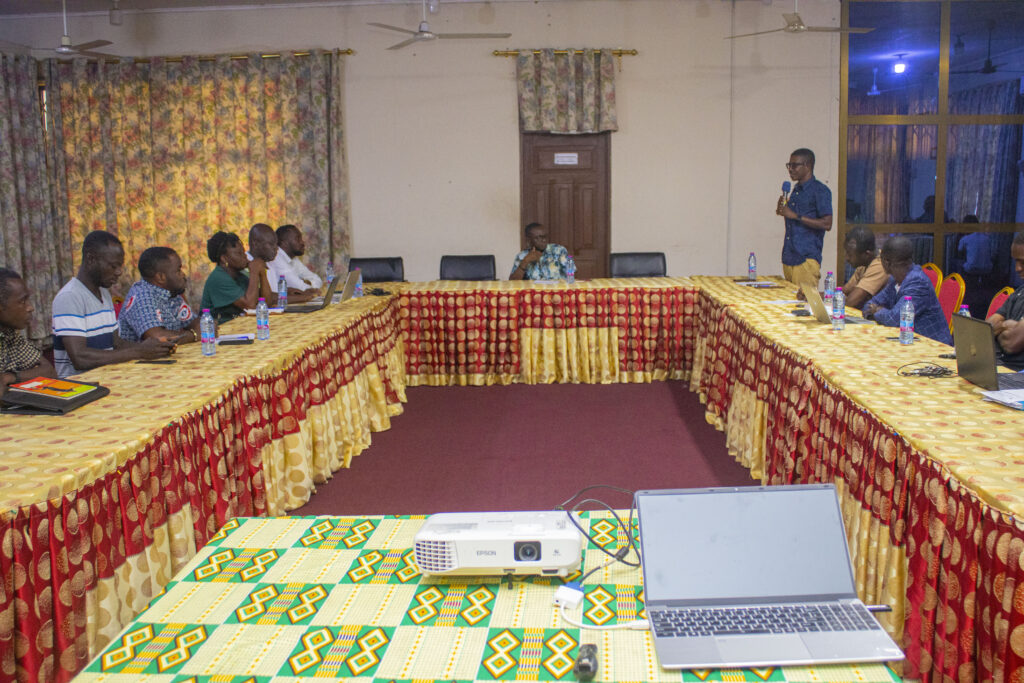CSIR-CROPS RESEARCH INSTITUTE LAUNCHES NEW TOMATO INTEGRATED PEST MANAGEMENT INITIATIVE

The CSIR-Crops Research Institute (CSIR-CRI) has launched a new Tomato Integrated Pest Management (IPM) Initiative to address the persistent challenge of pest infestations in tomato production across Ghana. The initiative aims to promote sustainable, environmentally friendly, and cost-effective pest control practices that safeguard farmers’ yields while protecting consumer health and the environment.
Tomato is one of Ghana’s most economically important vegetables. However, its production continues to be constrained by destructive pests such as the tomato leaf miner (Tuta absoluta), tomato fruit borer (Helicoverpa armigera), and the tobacco whitefly (Bemisia tabaci), as well as several viral diseases. These pests cause substantial yield losses, resulting in high import bills and compelling many farmers to depend heavily on synthetic pesticides.
The new initiative, dubbed “Development of Pest Monitoring and Eco-Friendly Control Technologies for Africa,” is sponsored by the Korea-Africa Food and Agriculture Cooperation Initiative (KAFACI). It seeks to leverage technological tools and biological agents to develop effective pest monitoring systems and eco-friendly integrated management strategies for major tomato pests in Ghana.
Speaking at the project’s inception meeting held at CSIR-CRI in Fumesua, the Director of the Institute, Prof. Maxwell Darko Asante, reaffirmed CSIR-CRI’s commitment to developing science-based solutions that directly address farmers’ challenges. He noted that the high levels of tomato importation into Ghana were a major concern to the Institute and called for increased efforts to boost local production.

“Our focus is to develop and promote practical, eco-friendly pest management strategies that reduce chemical use while improving productivity,” he said. “This initiative represents another milestone in our mission to ensure sustainable tomato production and safeguard livelihoods.”
Prof. Asante further urged government and private sector stakeholders to invest more in tomato seed production to complement ongoing research and development efforts. Dr. Kofi Frimpong-Anin, a Senior Research Scientist at CSIR-CRI and Principal Investigator of the project, explained that the IPM initiative will combine biological control methods with advanced technological tools. A key innovation under the project is the development of a pest monitoring and prediction model, which will use field data and weather information to track pest populations and forecast potential outbreaks. This system will enable timely interventions and data-driven decision-making by farmers and agricultural extension officers.


“This predictive tool will transform how we manage pest threats,” Dr. Frimpong-Anin emphasized. “By knowing when and where pest populations are likely to increase, farmers can act proactively rather than reactively.”
He added that the project aims to enrol at least 1,000 farmers who will receive regular pest management alerts by the end of the project. In addition, a ready-to-use microbial biopesticide will be developed and made available for farmers’ use.
Mr. Augustine Ofosu, a member of the project team, presented details of the monitoring and forecasting model. He explained that once developed, farmers would be enrolled onto the system, which would not only predict pest population dynamics but also forecast successive waves of pest attacks, allowing for season-long management strategies.


“The model is designed to synchronize predictions with the local, real-time development of both the crop and population dynamics of the pests,” Mr. Ofosu said. “This model lays the foundation for a smarter, safer, and more profitable tomato industry in Ghana, representing a shift from desperation to data-driven decision-making.”
The initiative will be implemented in key tomato-growing areas including Akomadan, Afrancho, Offuman, Tuobodom, Keta, and Fetentaa, where on-farm trials and farmer field schools will be established. Through these participatory approaches, farmers will test and adapt IPM technologies to their local production environments.


According to Dr. Frimpong-Anin, the project aligns with Ghana’s national efforts to reduce pesticide misuse and promote climate-smart agricultural practices. “Our approach integrates research, technology, and farmer knowledge to build a resilient tomato production system that benefits both people and the planet,” he added.
Moving forward, CSIR-CRI will continue to collaborate with development partners, private sector stakeholders, and local communities to scale up the adoption of IPM technologies nationwide, ensuring that Ghana’s tomato industry becomes more competitive, sustainable, and environmentally responsible.
Authors: Bernard Sakyiamah, Enoch Bobie Agyemang, Dennis Gyasi Boakye
